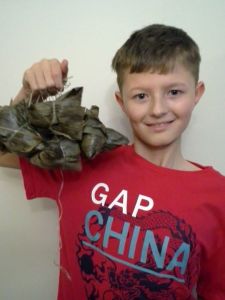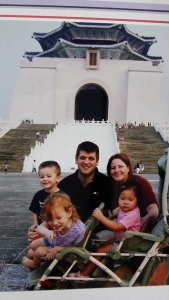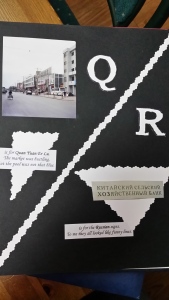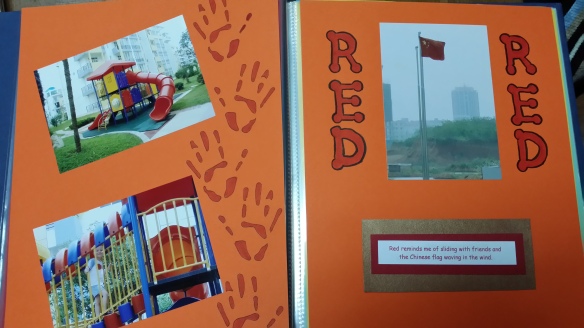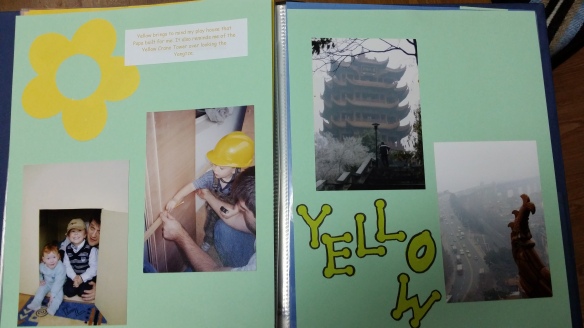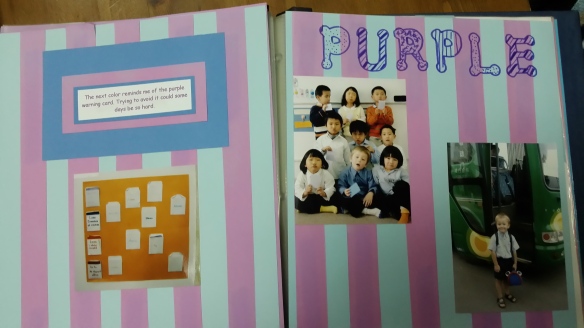I’ve so enjoyed this little series on leaving and want to thank again all those who have sent in stories to share. Today’s guest post comes from an ATCK who writes books for and about TCKS. You can find my interview with Valérie about her book, B at Home: Emma Moves Again here. Please welcome, Valérie and what she as to say about being left behind.
At most international schools, June is marked as the ‘leaving month’. Last year, I wrote a piece here specifically about leaving and saying goodbye. It was prompted by people leaving, people close to us dying, and a lot of grief. “Partir, c’est mourir un peu” (translation: Leaving is to die a little), but I have come to realize that staying is as well. This school year, my focus is shifting towards ‘staying’.
Clearly, being left behind by loved ones who pass is an entire different kind of loss. The abruptness of death’s goodbye can be heartbreaking and so few words of comfort can do justice. However, in terms of the global mobile lifestyle, we are often granted the luxury of anticipating goodbyes. Staying au lieu of leaving confronts us with just as much loss. Perhaps even more, because when others leave, we are left with a certain emptiness. And as the emptiness is not filled with all the new input that comes along with starting again somewhere else, the emptiness can sometimes be more overwhelming than we imagine. After all, when we stay, we are not confronted with intense changes to our lives on almost every front. Yet, our lives do change forever.
Last year, I had to say good bye to one of my closest friends and her family. When they left, my daughters and I had to part with certain small rituals and traditions that we had built up together with my friend and her daughters. At the ages of three and one, my girls didn’t understand why we didn’t have regular play-dates any more. Even after traveling on many trans-atlantic flights to visit grandparents, distance is not an easy concept for a young child. Months after our friends left, my three-year-old would still ask if we would meet up with her friend when we drive to the local playground or in the general direction of their old house.
When we are the leaver, or the mover, nothing can ever replace what or who we leave behind, but eventually the transition curve catches up and excitement about what is new catches on. When we are left behind, eventually things do fill up the empty space that other leave, but we all know that filling up never replaces. And then the seasons pass, and the people who fill up our lives become the very ones who we grow another attachment to and who we will need to say goodbye to at another point. The cycle of mobility doesn’t stop, and most of us wouldn’t even want it to.
As an ATCK, teacher and mother, and passionate about the subject of children and mobility, I do believe we can help our children become strong leavers and stayers. With the luxury of anticipation, and the research-based evidence of the effects of unresolved grief and mobility on a child’s life, we owe it to our children and students to provide them with the tools and language to say goodbye properly. To be able to leave well and to be able to be left behind well, is the beginning of intentionally jumping into a new journey.
As many TCKs feel that their idea of ‘home’ is associated with a sense of belonging, this attachment to ‘home’ changes when people around them leave. It is important to ensure that they are supported in their transitions as well. Just as there is an art to leaving well, there is most certainly an art to staying (as) well. For the first time in my adult life, I am moving into my sixth year in the same house, in the same town, holding the same job. For the first time I am starting to feel like a stayer, without losing sight of the probability of leaving again one day, and it is putting so much in perspective.
Thanks Valérie for taking time to write for us today.
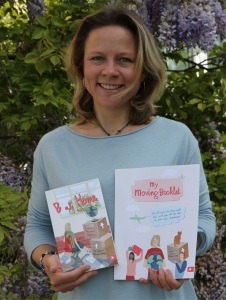 Originally Dutch, Valérie Besanceney grew up changing schools and countries five times as a child. She is a quintessential Third Culture Kid (TCK) turned adult, with a passion for traveling while cultivating a strong sense of home. Currently, home is in Switzerland, together with her American husband and their two daughters. Apart from writing, Valérie loves teaching Year 3 at an international school.
Originally Dutch, Valérie Besanceney grew up changing schools and countries five times as a child. She is a quintessential Third Culture Kid (TCK) turned adult, with a passion for traveling while cultivating a strong sense of home. Currently, home is in Switzerland, together with her American husband and their two daughters. Apart from writing, Valérie loves teaching Year 3 at an international school.
Valérie’s first book, B at Home: Emma Moves Again (Summertime Publishing), is a fictional “memoir” about the experiences of a ten-year-old girl and her teddy bear who have to move, yet again. During the different stages of their relocation, Emma’s search for home takes root. As the chapters alternate between Emma’s and her bear’s point of view, Emma is emotionally torn whereas B serves as the wiser and more experienced voice of reason.With this book, Valérie hopes to give younger TCKs a story that they can identify with while they experience their own challenging move.
Her second book, My Moving Booklet (Summertime Publishing), is designed to help children through the initial stages of an upcoming move. Moving can be exciting and terrifying at the same time. It can be very sad to say goodbye, but it can also be incredibly fun to experience new things and meet new people. Everybody experiences a move differently, but it is very important to say goodbye properly. This booklet allows children to truly welcome the new challenges and adventures that lie ahead of them, together with their parents and teachers. In many parts of the booklet, they will have the opportunity to either write about it, to draw a picture, or to glue on a photograph. This is their own unique story that one day will serve as a keepsake of a life-changing event.
Although both books are targeted at a younger TCK audience, Valérie also hopes to reach out to parents and educators of TCKs. You can find more information on her website: www.valeriebesanceney.com and Facebook page: https://www.facebook.com/besanceneyvalerie.









